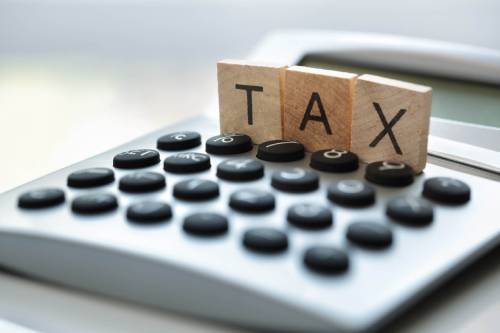
Majority of us think that we pay excess taxes, and instead of figuring out how to save income tax, all we do is worry about it. Amongst all the taxpayers, the salaried class are the ones who worry and complain the most. The biggest reason for this worry is that the rise in salary is not proportionate to the growth of inflation. But don’t worry, below are some tips that will give you an idea on how to save income tax as a salaried taxpayer in A.Y. 2019-20:
-
Save Tax on Rent Payment
Most of the times we need to move to a different city for a job. And if one stays at a rented apartment, they can claim ‘House Rent Allowance’ (HRA) to save taxes on house rent. You just need to submit PAN card copy of the landlord if the rent paid is more than Rs. 8333 per month.
If HRA is a part of your salary, then the minimum amount of these three options is available as tax exemption:
- The actual HRA amount provided by the employer
- The rent paid for the house, minus 10 percent of salary
- 50 percent of basic salary if living in a metro city, 40 percent if it’s a non-metro city
-
Grab Benefits of Section 80C
It is a well-known fact that under Section 80C one can claim maximum deductions of Rs. 1.5 lakhs on taxes. However, we hardly know how to save income tax under this Section. Well for individuals who are investing for the first time, can invest in any of the below-mentioned tax saving instruments.
- Public Provident Fund
- Life Insurance Premiums
- Tuition fee paid for children’s education (maximum 2 Children)
- National Savings Certificate
- Employer Provident Fund
- National Pension Scheme
- Senior Citizen’s Saving Schemes
-
Look Beyond 80C
While many people know about the benefits of tax exemptions under different Sections, other have no idea on how to save tax other than 80C? If you belong to the latter one, worry not for we will tell you about some options that will help you avail tax exemptions.
Some of them are:
- Section 80D:A deduction of Rs. 25,000 can be claimed for insurance of self, spouse and dependent children. An additional deduction for insurance of parents is available to the extent of Rs 25,000 if they are less than 60 years of age or Rs 50,000 (has been increased in Budget 2018 from Rs 30,000) if parents are more than 60 years old.
Suggested Read: Section 80D Deduction - Eligibility, Deduction & Calculation
- Section 80E: A deduction is allowed to any individual for the interest on the loan taken for higher education. The loan can be taken for the taxpayer, children or spouse or for a student for whom the taxpayer is a legal guardian. The deduction is available for a maximum of 8 years (Starting from the year you start repaying the interest) or till the time the entire interest is repaid. There are no restrictions on the amount that can be claimed under this Section.
- Section 24: Under Section 24 of the Income Tax Act, homeowners can claim a deduction of up to Rs. 2,00,000 (If filing returns for the last financial year the amount is Rs. 1,50,000) on the home loan interest if the owner or any member of his family resides in the house. Moreover, if the house is on rent, the entire interest is waived off as a deduction.
- Section 80D:A deduction of Rs. 25,000 can be claimed for insurance of self, spouse and dependent children. An additional deduction for insurance of parents is available to the extent of Rs 25,000 if they are less than 60 years of age or Rs 50,000 (has been increased in Budget 2018 from Rs 30,000) if parents are more than 60 years old.
-
Interests Paid on Loans
Home loans are useful tax saving instruments. There are three ways to save taxes by getting tax deductions on home loans:
- Deductions up to Rs. 1.5 lakhs for the principal amount repaid under Section 80C
- Tax deductions up to Rs. 2 lakhs on the interest portion under Section 24
- One can also claim tax benefits under Section 80C for the registration charges paid
Suggested Read:
Section 80EE: Income Tax Deduction for Interest on Home Loan
Section 80EEA - Claim deduction for the interest paid on housing loan
-
Standard Deduction
Tax deductions for both LTA and medical allowance now are replaced by standard deductions after the budget 2018. A limit of Rs. 40,000 is decided as the standard deduction for salaried taxpayers from their gross income. Moreover, there is no need to show any proof or bills to get this benefit.
-
Gratuity Benefits
The gratuity amount received on retirement or on becoming injured can be subjected to tax deductions. The amount received by the spouse of the employee, children or any dependents on the death of the employee is exempted to taxes under certain conditions.
The maximum amount for which the exemption can be claimed by an individual during a lifetime is Rs. 20,00,000.
-
Donations and Charity
“Charity never goes un-blessed” is a famous quote, and it is also true. Contributions made to any charitable institutions are eligible for tax deductions under Section 80G. A deduction up to 50 or 100 percent of the amount donated can be claimed under deduction from the income depending on the organisation to which donations have been made. One just needs to have stamped receipts of the donations made to make sure that the organisation is registered.
Conclusion:
One of the best ways to save taxes is to declare them on time. Once you have done that, learn about the above-stated methods on how to save income tax in India, and you will never have to pay any additional taxes.




Comments